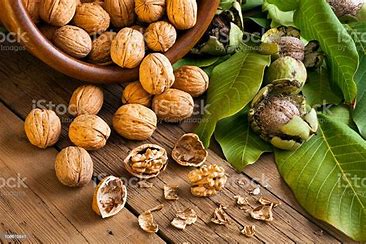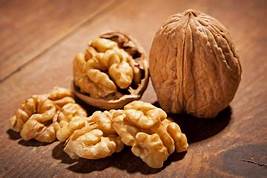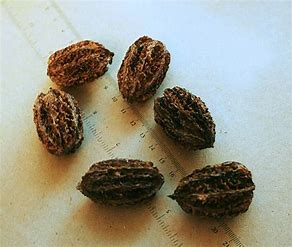
In this article, I will explain what walnuts are and discuss their numerous health benefits, including nutrition and overall well-being.
What are walnuts?


Walnuts are the seeds of the Juglans genus of trees, which are native to North America but are now cultivated in various regions around the world.
They are considered a type of tree nut and are known for their distinctive, hard, and wrinkled shells.
Inside the shells are the edible parts, which are the walnut kernels or “meat.”
Walnuts are highly nutritious and are often consumed as a healthy snack or used in cooking and baking.
Types of walnuts.
Several different types of walnuts are
1. English Walnut (Juglans regia):





are a unique type of walnut with a heart-shaped kernel.
They have a mild and slightly sweet flavor.
Heartnuts walnuts grow primarily in Japan and are gaining popularity in other regions for their distinctive appearance and taste.
These are just a few examples of the different types of walnuts available.
Each variety has its own characteristics in terms of flavor, shell hardness, and culinary uses.
They are a good source of various essential nutrients, including:
Healthy Fats:
Walnuts are rich in unsaturated fats, particularly omega-3 fatty acids, which are beneficial for heart health.
Protein:
They provide a moderate amount of protein, making them a suitable addition to vegetarian and vegan diets.
Fiber:
Walnuts are a good source of dietary fiber, which aids in digestion and helps maintain a feeling of fullness.
Vitamins:
They contain several vitamins, including vitamin E, B vitamins (such as folate and vitamin B6), and small amounts of vitamin C.
Minerals:
Walnuts provide essential minerals like magnesium, phosphorus, and potassium.
Antioxidants:
Walnuts are rich in antioxidants, including polyphenols and compounds like ellagic acid, which may help protect cells from oxidative damage.
Plant Compounds:
Walnuts also contain phytochemicals like phytosterols and flavonoids, which have potential health benefits.
Eating walnuts regularly has been associated with several potential health benefits, such as improving heart health by reducing cholesterol levels, supporting brain function, and reducing inflammation in the body.
They are also a good source of calories and healthy fats for those looking to increase their energy intake in a balanced manner.
You can eat it on its own as a snack or add it to a variety of dishes, including salads, oatmeal, yogurt, and baked goods like cookies and bread.
You can also use it to make walnut oil and can use it in cooking and as a salad dressing.
It’s worth noting that some people may have nut allergies, including allergies to walnuts, so it’s essential to be cautious if you or someone you are serving has a known nut allergy.
Additionally, consuming walnuts in moderation as part of a balanced diet can contribute to overall health and nutrition.
What are the benefits of walnuts?
Walnuts offer a range of potential health benefits due to their nutritional content.
Here are some of the key benefits associated with consuming walnuts:
1. Heart Health:
Omega-3 Fatty Acids:
Walnuts are one of the best plant-based sources of alpha-linolenic acid (ALA), an omega-3 fatty acid that has been linked to reduced risk of heart disease. Omega-3s can help lower bad cholesterol (LDL) levels and reduce inflammation, which can benefit heart health.
2. Cholesterol Management:
Lower LDL Cholesterol:
Regular consumption of walnuts may help lower LDL cholesterol levels, which can reduce the risk of atherosclerosis (hardening of the arteries) and cardiovascular disease.
Blood Pressure Regulation:
The potassium, magnesium, and healthy fats in walnuts can contribute to healthy blood pressure levels.
3. Brain Health:
Cognitive Function:
Walnuts contain antioxidants and polyphenols that may help protect brain cells from oxidative damage, potentially benefiting cognitive function and reducing the risk of age-related cognitive decline.
Anti-Inflammatory Effects:
Walnuts contain compounds like ellagic acid and other antioxidants that can help reduce inflammation in the body, which is associated with various chronic diseases.
4. Weight Management:
Satiety:
The combination of protein, healthy fats, and fiber in walnuts can help promote feelings of fullness and reduce overall calorie intake, making them a satisfying snack that can aid in weight management.
5. Diabetes Management:
Improved Insulin Sensitivity:
Some studies suggest that incorporating walnuts into the diet may help improve insulin sensitivity, which can benefit individuals with type 2 diabetes or insulin resistance.
6. Gut Health:
Digestive Health:
The fiber in walnuts can support healthy digestion and may promote the growth of beneficial gut bacteria.
Antioxidant Protection:
Walnuts are rich in antioxidants, which can help protect cells from oxidative damage caused by free radicals and reduce the risk of chronic diseases.
7. Bone Health:
Calcium and Magnesium:
Walnuts contain calcium and magnesium, which are important minerals for bone health.
It’s important to note that while walnuts have many potential health benefits, they are also calorie-dense, so portion control is key, especially if you are trying to manage your weight.
A small handful (about 1 ounce or 28 grams) of walnuts per day is a typical serving size.
Incorporating walnuts into a balanced diet along with other nutrient-rich foods can contribute to overall health and well-being.
As with any dietary changes, it’s advisable to consult with a healthcare professional or registered dietitian, especially if you have specific health concerns or dietary restrictions.
What are the uses of walnuts?
We can use walnuts in a variety of dishes and we can add them to a wide range of dishes.
Here are some common uses of walnuts in cooking and food preparation:
Snacking:
We can eat walnuts on their own as a nutritious and satisfying snack.
A small handful of walnuts makes for a convenient and portable option for a quick energy boost.
Baking:
Baked Goods:
Walnuts are a popular ingredient in baking, adding a delightful nutty flavor and texture to cookies, muffins, bread, cakes, and brownies.
Chopped or ground walnuts are often used in these recipes.
Pie Fillings:

Walnut pie, similar to pecan pie, is a sweet dessert made with walnuts, sugar, and other ingredients.
Salads:

You can use walnuts in salads to add a crunchy texture and a rich, earthy flavor.
They pair well with various salad ingredients, including greens, fruits (such as apples or pears), cheeses (like goat cheese or Gorgonzola), and vinaigrette dressings.
Breakfast:
Oatmeal:

Oatmeal with walnuts can be a nutritious choice for a healthy diet.
Oatmeal is a whole grain that is rich in fiber, vitamins, and minerals.
It can help lower cholesterol levels and promote heart health. Walnuts are a good source of healthy fats, protein, and antioxidants.
They may have benefits for brain health and reducing inflammation.
For health benefits, top your morning oatmeal with chopped walnuts to add texture and a nutty taste.
Yogurt and Smoothie Bowls:
Yogurt and smoothie bowls with walnuts can be a nutritious choice for a healthy diet.
As we know, Yogurt is a good source of protein, calcium, and probiotics, which can support digestive health.
Smoothie bowls, when made with a variety of fruits and vegetables, can provide essential vitamins, minerals, and antioxidants.
Walnuts, as mentioned earlier, are a good source of healthy fats, protein, and antioxidants.
They can add a satisfying crunch and additional nutritional benefits to your yogurt or smoothie bowl.
Sprinkle walnuts on yogurt or smoothie bowls for added protein and crunch.
Main Dishes:
Coating for Protein:
We can use it as a coating for chicken, fish or tofu to create a crunchy crust while frying or baking.
Stuffing:
We can sometimes use walnuts in stuffing recipes for poultry dishes.
Sauces and Dips:
Pesto:
We can use walnuts as a substitute for pine nuts in pesto recipes, and make flavorful sauces for pasta, salads, etc.
Walnut Sauce:
We can use walnuts in some dishes to make rich and creamy sauces for pasta or meat dishes.
Dips:
You can add walnuts to dips and spreads, such as hummus or hummus, for added flavor and texture.
Cheese Plates:
Walnuts are a classic accompaniment to cheese platters, offering a complementary texture and taste to various cheeses.
Garnish:

You can crush or chop walnuts and use them as a garnish for soups, stews, and roasted vegetables.
Homemade Energy Bars:
You can make homemade energy bars or protein bars by combining walnuts with other ingredients like dried fruits, oats, and honey.
Nut Butter:
We can prepare homemade walnut butter by blending walnuts until smooth. We can use it as a spread or add it to smoothies and oatmeal.
Trail Mix:
Walnuts are a popular addition to homemade trail mix, along with other nuts, dried fruits, and seeds.
Stuffing for Vegetables:
We can use walnuts as a filling for vegetables like mushrooms or bell peppers.
When using walnuts in cooking or baking, it’s important to store them properly to prevent them from becoming rancid.
Walnuts can be stored in an airtight container in a cool, dry place or in the refrigerator or freezer for longer-term storage.
If you have a nut allergy or are serving someone with a nut allergy, be mindful of cross-contamination when using walnuts in recipes, and ensure that the dishes are clearly labeled.
We can use walnuts for different diseases.
Walnuts are a nutritious food that can potentially offer health benefits and support overall well-being.
While they are not a cure for specific diseases, incorporating walnuts into a balanced diet may have a positive impact on certain aspects of health and help reduce the risk of certain conditions.
Here are some ways in which walnuts may be beneficial for various aspects of health:
Heart Disease:
Heart Health:
Walnuts are rich in omega-3 fatty acids, antioxidants, and fiber, which can help reduce risk factors for heart disease.
Regular consumption may help lower LDL cholesterol levels, improve blood vessel function, and reduce inflammation, all contributing to better heart health.
Diabetes Management:
Improved Insulin Sensitivity:
Some studies suggest that walnuts may improve insulin sensitivity, potentially benefiting individuals with type 2 diabetes or insulin resistance.
The healthy fats and fiber in walnuts can help stabilize blood sugar levels.
Weight Management:
Satiety:
Walnuts are a satisfying snack due to their protein, fiber, and healthy fats, which can help control appetite and reduce overall calorie intake, making them a suitable option for weight management.
Brain Health:
Cognitive Function:
Walnuts contain antioxidants and polyphenols that may help protect brain cells from oxidative damage.
Omega-3 fatty acids in walnuts have been associated with improved cognitive function and a reduced risk of age-related cognitive decline.
Inflammation:
Anti-Inflammatory Effects:
Walnuts contain compounds like ellagic acid and other antioxidants that can help reduce inflammation in the body.
Chronic inflammation is linked to various chronic diseases.
Cancer Prevention:
Antioxidants:
The antioxidants in walnuts may help protect cells from oxidative damage, which can contribute to the development of cancer.
Some studies suggest that regular consumption of walnuts may be associated with a lower risk of certain types of cancer.
Gut Health:
Digestive Health:
The fiber in walnuts can support healthy digestion and promote the growth of beneficial gut bacteria.
Bone Health:
Calcium and Magnesium:
Walnuts contain calcium and magnesium, which are important minerals for bone health.
Skin Health:
Antioxidants:
The antioxidants in walnuts can help protect the skin from damage caused by free radicals, potentially benefiting skin health.
It’s important to remember that while walnuts can be a valuable part of a healthy diet, they should not be relied upon as a sole treatment for specific medical conditions.
If you have a medical condition or are managing a specific disease, it’s crucial to consult with a healthcare professional for personalized advice and treatment options.
Additionally, a balanced diet that includes a variety of nutrient-rich foods, along with other healthy lifestyle choices, is essential for overall health and disease prevention.
Are walnuts harmful?
Walnuts are a safe and nutritious moderate-balance diet.
However, there are some considerations and potential risks associated with walnuts:
Allergies:
Some individuals may be allergic to walnuts or tree nuts in general. Nut allergies can cause a range of symptoms, from mild itching and hives to severe and life-threatening reactions such as anaphylaxis.
If you or someone you know has a known nut allergy, it’s crucial to avoid walnuts and all nut-containing products completely.
Caloric Density:
Walnuts are calorie-dense due to their healthy fat content.
While the fats in walnuts are considered beneficial, consuming them in excess can lead to weight gain if not accounted for within your daily caloric intake.
Portion control is essential, especially if you’re watching your weight.
Oxalates:
Walnuts, like some other foods, contain oxalates, which can contribute to the formation of kidney stones in susceptible individuals.
If you have a history of kidney stones or are at risk for developing them, you may need to moderate your intake of high-oxalate foods like walnuts.
Gastrointestinal Issues:
In some cases, overconsumption of walnuts or other nuts may lead to gastrointestinal discomfort, including bloating, gas, or diarrhea.
It’s advisable to consume walnuts in moderation and monitor your body’s response to them.
Omega-6 Fatty Acids:
While walnuts are a good source of omega-3 fatty acids (alpha-linolenic acid or ALA), they also contain omega-6 fatty acids.
A balanced intake of omega-3 and omega-6 fatty acids is essential for overall health.
An excessive intake of omega-6 fatty acids relative to omega-3s may promote inflammation.
To maintain a healthy balance, it’s advisable to incorporate other sources of omega-3 fatty acids into your diet, such as fatty fish (e.g., salmon, mackerel, sardines) and flaxseeds.
Potential for Rancidity:
Walnuts contain oils that can become rancid over time, especially if not stored properly.
To maintain their freshness and quality, store walnuts in an airtight container in a cool, dry place or in the refrigerator or freezer for longer-term storage.
Interactions with Medications:
Some medications may interact with walnuts or other nuts.
For example, people taking blood-thinning medications (anticoagulants) may need to monitor their nut intake because of the potential for increased bleeding risk.
If you’re taking medications, consult with your healthcare provider or a registered dietitian to ensure there are no dietary contraindications.
It’s essential to enjoy walnuts as part of a varied and balanced diet, taking into account any specific dietary restrictions or medical conditions you may have.
If you have concerns about incorporating walnuts into your diet or any potential risks, consult with a healthcare professional or a registered dietitian for personalized guidance based on your individual health status and dietary needs.







